From feeling to measurement
In the development process of the Vietnamese revolution, our Party has always identified cadre work as the "key" of the "key". In the new context, when operating a two-level local government and integrating deeply into the world, the requirement to improve the quality of cadres is increasingly high, so the assessment of cadre capacity therefore also requires innovation in both thinking and practice.
In recent times, Tuyen Quang Province has issued many important directives and resolutions on improving the quality of its staff, improving its management capacity and the quality of its services to the people. Most recently, the Provincial People's Committee issued Decision 623 on the Regulations on monthly assessment and classification of the quality of the Provincial People's Committee Chairman for the heads of affiliated agencies and units and the Chairmen of the Commune People's Committees.
 |
| Thanh Thuy commune officials handle work to ensure completion of assigned tasks. |
This is considered a breakthrough in public administration, leaders are evaluated monthly, using specific, public, and transparent measurement indicators. What is special is the combination of qualitative and quantitative; instead of emotional evaluation, officials are scored based on task performance, work progress, people's satisfaction, field inspection results, and compliance with public discipline. The A (excellent) rating is only for those who score 9 points or more, meaning they not only complete the work, but also create products with real impact.
Along with that, the Law on Cadres and Civil Servants 2025 stipulates the assessment and classification of civil servants according to criteria related to progress, quality, products according to job positions and output products. The viewpoint of "considering talented people as special subjects of the civil service" is being concretized by the measurement tools that Tuyen Quang is applying. The thinking of evaluating cadres has therefore shifted strongly from "potential capacity" to "actual capacity", measured by numbers, products and social efficiency.
Deputy Director of the Department of Home Affairs Le Van Dat shared: “Decision 623 of the Provincial People's Committee is essentially a form of assessment based on KPI (Key Performance Indicator) for heads of agencies and units, emphasizing the measurement of output results and effectiveness of task implementation. The assessment is carried out democratically, publicly, transparently, objectively and continuously, avoiding favoritism or formality.
The monthly ranking results not only serve to handle difficulties in the operations of agencies and units but also help identify limitations and propose solutions to improve the quality of public service performance. At the same time, this is also an important basis for annual quality ranking according to the regulations of the Party, the Government and the Ministry of Home Affairs .
Quality products from the contracting mechanism
On Monday morning, the working atmosphere at the Public Administration Service Center of Ha Giang Ward 2 was urgent and orderly. Ms. Nguyen Thi Thanh Nga, group 2 Minh Khai, was present early in the morning to complete the application for determining the level of disability for her relatives. There was no need to wait long, each step of the online application was guided enthusiastically and quickly by the staff.
Ms. Nga rated her satisfaction with the service attitude of the center's staff. From July 1 to November 9, the Center received 2,774 applications, the rate of applications resolved before and on time reached 99.1%. Deputy Director of the Center Tran Do Phong emphasized: "The Center evaluates the level of task completion every month, scoring according to each criterion associated with functions and tasks.
The staff who work full-time, not full-time, are monitored and evaluated quarterly based on work results associated with their job positions and specific measurement indicators on public service culture, implementation of regulations, satisfaction level of citizens and businesses, number of complaints, rate of file resolution, etc. This specific and substantive evaluation helps staff improve their responsibility, increase their initiative and innovation in performing their duties.
At the Provincial Tax Department, innovation in leadership methods, proactive advice, effective revenue management solutions from the head, implementation of a monthly performance evaluation system for officers and employees, linked to personal responsibility and unit efficiency are creating outstanding results. In the period of 2020 - 2025, the Provincial Tax Department always completed and exceeded the estimates assigned by the National Assembly, the Government and the province.
 |
| The increase in the number of tourists to the province is proof of the effectiveness of the tourism industry. |
Ms. Nguyen Quynh Anh, a provincial tax officer, said: “The monthly assessment of staff using the A, B, C scale and attendance is carried out publicly, transparently, fairly, and based entirely on work performance. This method helps each person to review their level of task completion, thereby making more efforts, enhancing their sense of responsibility, and encouraging creativity in the process of performing tasks.”
One of the units that clearly demonstrated the spirit of initiative and flexibility in leadership, management and innovation in management methods is the Department of Culture, Sports and Tourism. Closely following the assigned functions and tasks, the Department has promptly advised the province to issue many mechanisms and policies, successfully organized many events to promote the development of culture, sports and tourism; at the same time, assigned specific targets and tasks to each member of the Board of Directors, specialized departments and affiliated units, ensuring clear people, clear work and clear responsibilities.
In particular, the tourism sector is gradually asserting its role as a key economic sector with many outstanding results: Total investment capital for the 2021-2025 period is estimated at nearly 12,000 billion VND; the province exploits 176 tourist areas and spots; develops 54 community tourism villages; the tourism product system is increasingly complete, many tourism products are internationally recognized. The whole province has over 1,490 accommodation establishments with more than 15,000 rooms.
Director of the Department of Culture, Sports and Tourism Nguyen Trung Ngoc said: “The motto “6 clear” is specified in each goal, task and each position in charge. This approach has overcome the situation of dependence, improved discipline, and at the same time aroused the spirit of initiative and creativity in the staff.”
In addition, departments and branches with assigned functions and tasks all strive to deploy synchronous solutions to complete each specific target and task. On the national public service portal, Tuyen Quang province ranked 16th in service quality, in which in the province, the Department of Education and Training, the Department of Agriculture and Environment, and the Department of Home Affairs were the top 3 agencies with over 90 points; 122/124 communes maintained a level of over 90 points.
In many communes and wards, socio-economic development targets, budget revenue, digital transformation, administrative reform, poverty reduction, temporary housing elimination... are all quantified in association with the specific tasks of each committee member and each sector and used as criteria to evaluate the level of task completion at the end of the year. For example, in Viet Lam commune, each officer is responsible for helping 1 household escape poverty; Yen Son commune assigns tasks to each officer in charge of promoting business development, private economy, promoting entrepreneurship and innovation; Con Lon commune associates the responsibility of the head with mobilizing resources to build transport infrastructure according to the breakthrough targets of the Party Congress at all levels...
According to the report of the Department of Home Affairs, implementing Decision 623, in September, for the heads of agencies and units under the Provincial People's Committee (24 people), there were 4 people who excellently completed their tasks, 16 people who well completed their tasks and 5 people who completed their tasks; for the Chairmen of the People's Committees of communes and wards, there were 10 people who excellently completed their tasks, 88 people who well completed their tasks and 26 people who completed their tasks.
To make KPI the driving force for sustainable development
In the draft Decree of the Government on the assessment and classification of the quality of civil servants, a notable new point is the inclusion of KPIs in the assessment system. This is an important step forward in public administration, but also raises many issues regarding its suitability and feasibility in practice. According to Associate Professor, Dr. Tran Thi Dieu Oanh, Head of the Faculty of Law, Academy of Public Administration and Management, KPI assessment in the public sector has been implemented in many countries such as Singapore, Korea, UK...
To apply KPIs to cadres and civil servants, it is important that the criteria are realistic, accurately reflect the job position and public service objectives, and avoid applying formalities. It is necessary to build a set of clear, measurable KPI indicators, including both quantitative and qualitative ones. In addition to indicators on progress and workload, it is necessary to add criteria on quality, sense of responsibility, culture, public service ethics, etc. for a more comprehensive assessment.
In fact, the assignment of products to cadres and civil servants is bringing positive changes in the public administration sector, however, there is no unified guidance for implementation. Each public position needs to have its own set of indicators, measuring all four factors of volume, progress, quality, and efficiency. There is no general KPI, and no subjective assessment.
Along with that, KPI results must be the basis for decisions on human resource processes, linking evaluation with appointment, reward, transfer of staff, encouraging the spirit of "7 dares" in staff (Dare to think, dare to speak, dare to do, dare to take responsibility, dare to innovate, be creative, dare to face difficulties and challenges and dare to act for the common good). Along with that, strengthen training and standardization of staff according to job position standards, meeting the requirements of the digital transformation period.
With the determination to innovate thinking in evaluating cadres, taking products as a measure, taking people as the center of service, and when each task is quantified by specific indicators, each cadre is assigned clear responsibilities, the administrative apparatus will operate transparently, effectively, efficiently and serve the people better.
Bien Luan
Source: https://baotuyenquang.com.vn/xa-hoi/202511/thuoc-do-nang-luc-can-bo-8a67de7/


![[Photo] General Secretary To Lam receives Vice President of Luxshare-ICT Group (China)](https://vphoto.vietnam.vn/thumb/1200x675/vietnam/resource/IMAGE/2025/11/15/1763211137119_a1-bnd-7809-8939-jpg.webp)




![[Photo] Prime Minister Pham Minh Chinh meets with representatives of outstanding teachers](https://vphoto.vietnam.vn/thumb/1200x675/vietnam/resource/IMAGE/2025/11/15/1763215934276_dsc-0578-jpg.webp)

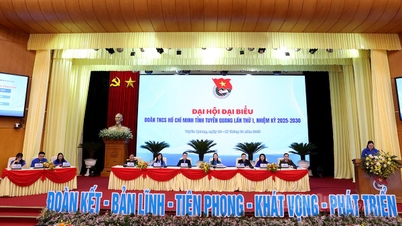
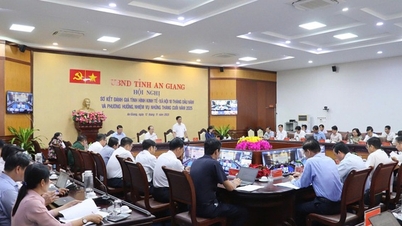

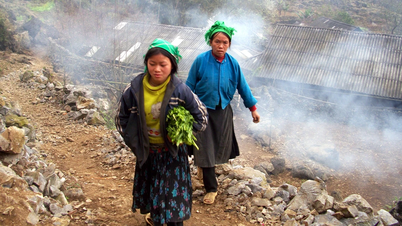
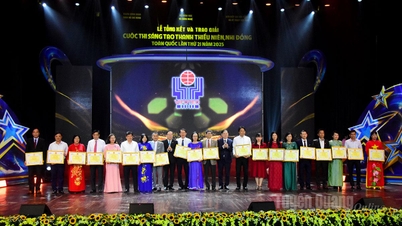




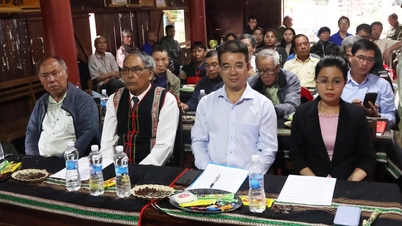



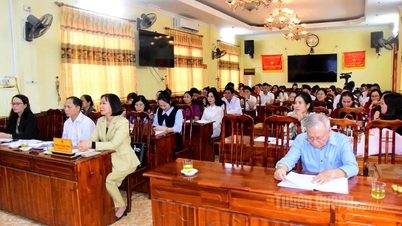








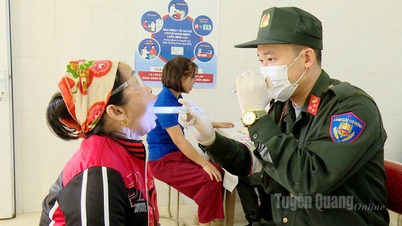
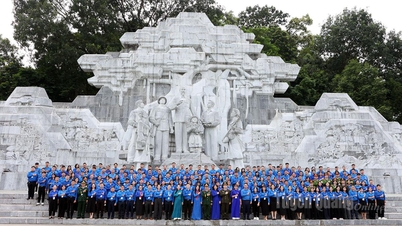
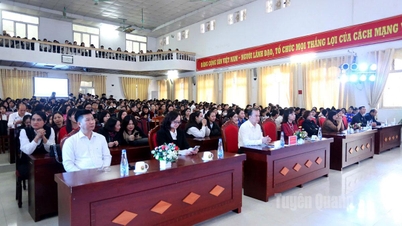
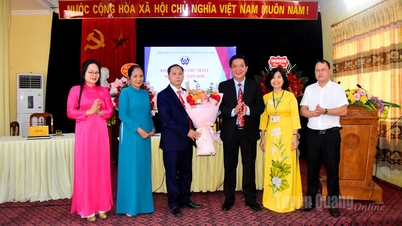
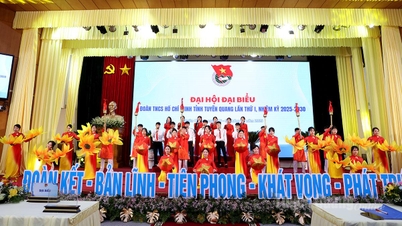





















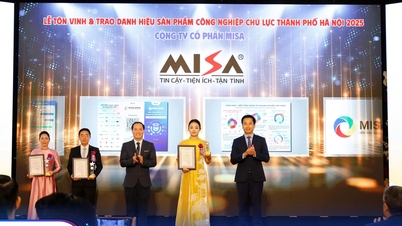

























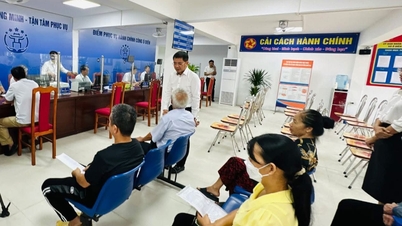
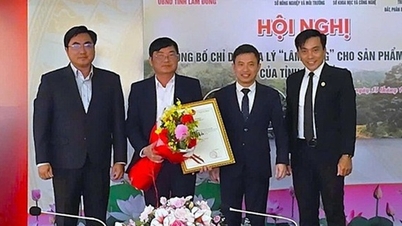



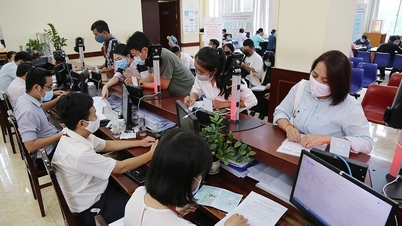

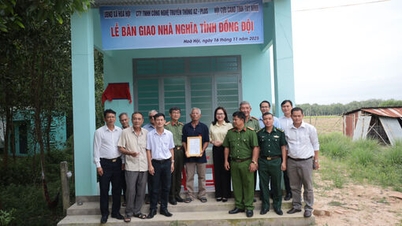



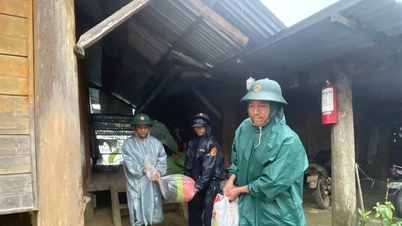

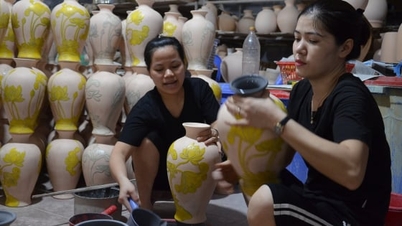












Comment (0)